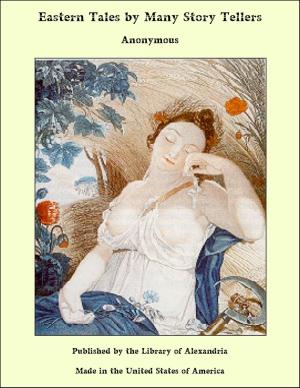A History of American Literature
Nonfiction, Religion & Spirituality, New Age, History, Fiction & Literature| Author: | Percy Holmes Boynton | ISBN: | 9781465623829 |
| Publisher: | Library of Alexandria | Publication: | March 8, 2015 |
| Imprint: | Language: | English |
| Author: | Percy Holmes Boynton |
| ISBN: | 9781465623829 |
| Publisher: | Library of Alexandria |
| Publication: | March 8, 2015 |
| Imprint: | |
| Language: | English |
In its beginnings American literature differs from the literatures of most other great nations; it was a transplanted thing. It sprang in a way like Minerva, full-armed from the head of Jove,—Jove in this case being England, and the armor being the heritage which the average American colonist had secured in England before he crossed the Atlantic. In contrast, Greek, Roman, French, German, English, and the other less familiar literatures can all be more or less successfully traced back to primitive conditions. Their early life was interwoven with the growth of the language and the progress of a rude civilization, and their earliest products which have come down to us were not results of authorship as we know it to-day. They were either folk poetry, composed perhaps and certainly enjoyed by the people in groups and accompanied by group singing and dancing,—like the psalms and the simpler ballads,—or they were the record of folk tradition, slowly and variously developed through generations and finally collected into a continuous story like the Iliad, the Æneid, the “Song of Roland,” the “Nibelungenlied,” and “Beowulf.” They were composed by word of mouth and not reduced to writing for years or generations, and they were not put into print until centuries after they were current in speech or transcribed by monks and scholars. The one great story-poem of this sort in American literature is the “Song of Hiawatha,” but this is the story of a conquered and vanishing race; it has nothing basic to do with the Americans of to-day; it is far less related to them than the earlier epics of the older European nations to whom we trace our ancestry. Except for a few place-names even the language of America owes nothing to that of the Indians, for the English tongue is a compound of Greek and Latin and French and German. Our literary beginnings, then, go back to two groups of educated English colonists, or immigrants, and our knowledge of them to conditions in the divided England from which they first came to Jamestown, Virginia, in 1607 and to Plymouth, Massachusetts, in 1620.
In its beginnings American literature differs from the literatures of most other great nations; it was a transplanted thing. It sprang in a way like Minerva, full-armed from the head of Jove,—Jove in this case being England, and the armor being the heritage which the average American colonist had secured in England before he crossed the Atlantic. In contrast, Greek, Roman, French, German, English, and the other less familiar literatures can all be more or less successfully traced back to primitive conditions. Their early life was interwoven with the growth of the language and the progress of a rude civilization, and their earliest products which have come down to us were not results of authorship as we know it to-day. They were either folk poetry, composed perhaps and certainly enjoyed by the people in groups and accompanied by group singing and dancing,—like the psalms and the simpler ballads,—or they were the record of folk tradition, slowly and variously developed through generations and finally collected into a continuous story like the Iliad, the Æneid, the “Song of Roland,” the “Nibelungenlied,” and “Beowulf.” They were composed by word of mouth and not reduced to writing for years or generations, and they were not put into print until centuries after they were current in speech or transcribed by monks and scholars. The one great story-poem of this sort in American literature is the “Song of Hiawatha,” but this is the story of a conquered and vanishing race; it has nothing basic to do with the Americans of to-day; it is far less related to them than the earlier epics of the older European nations to whom we trace our ancestry. Except for a few place-names even the language of America owes nothing to that of the Indians, for the English tongue is a compound of Greek and Latin and French and German. Our literary beginnings, then, go back to two groups of educated English colonists, or immigrants, and our knowledge of them to conditions in the divided England from which they first came to Jamestown, Virginia, in 1607 and to Plymouth, Massachusetts, in 1620.















